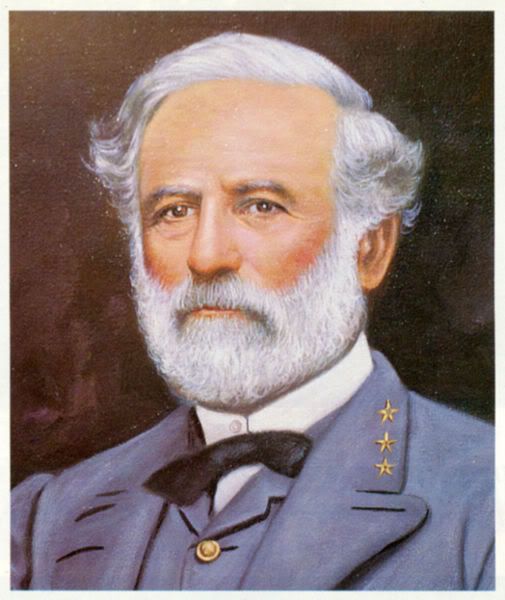 Robert E. Lee
Robert E. Lee
Sometimes all it takes is a single snippet in the news to open a world of insights. Consider this small item the other day: It seems two golfers in North
Shocking. Everybody knows that kind of shot calls for a No. 2 iron. Though a 9-iron might do in a pinch. Wasn't that Mrs. Woods' club of choice when she'd finally had enough of Tiger? I have no idea whether she'd remembered to keep her head down and follow through.
Golf has come a long way (down) since what became the
These sub-rules appear in an appendix to the first numbered rules and dictate the etiquette to be observed on the course. Like avoiding "actions made with intent to damage the course, facilities or other players' equipment" or "to injure other players or disturb/distract them while making their play...." In the age of the mulligan, such rules sound like relics of an earlier grace.
Naturally that brings me to mention
It was an English gentleman, Lord Moulton, who early in the last century theorized that there are three domains that govern the life of man: "First comes the domain of Positive Law, where our actions are prescribed by laws binding upon us which must be obeyed. Next comes the domain of Free Choice, which includes all those actions as to which we claim and enjoy complete freedom." But absolute law, dictating every action and maybe thought, too, becomes absolutely impossible to live with. It comes to be absolute tyranny. And absolute freedom becomes absolute anarchy. For what is freedom without law to ensure, interpret and guide it?
So, between those two domains, said Lord Moulton, must come a third, which has "one and the same characteristic throughout -- It is the domain of Obedience to the Unenforceable. The obedience is the obedience of a man to that which he cannot be forced to obey. He is the enforcer of the law upon himself." Call it custom or morality or manners. Lord Moulton, being an Englishman, called it Good Form.
It was an American general and gentleman,
Among those decisions, Lee established what may have been the first course in journalism on an American college campus. Imagine that -- believing journalists could be gentlemen. Lee added both business and law schools to the college's curriculum, believing both those trades should be linked to the liberal arts -- even though the more traditional scholars of his time looked askance at the very idea. For journalism and law had long been considered only technical crafts.
That wasn't all. Lee not only instituted the Honor System that still governs what has now become
In these politically correct times, the university that bears his name seems all too determined to erase any sign of its connection with Lee's famed
But the memory of Lee still calls us back to unspoken duty, to the domain of obedience to the unenforceable. In these latitudes, all it may take is a single word -- Lee -- to still our quarrelsome natures, and return us to respectful silence in the presence of his memory. The very mention of his name still bids us rise to the realm of Duty, which he once called the most sublime word in the language.
Comment by clicking here.
Paul Greenberg is the Pulitzer-winning editorial page editor of the Arkansas Democrat-Gazette.



 Contact The Editor
Contact The Editor
 Articles By This Author
Articles By This Author